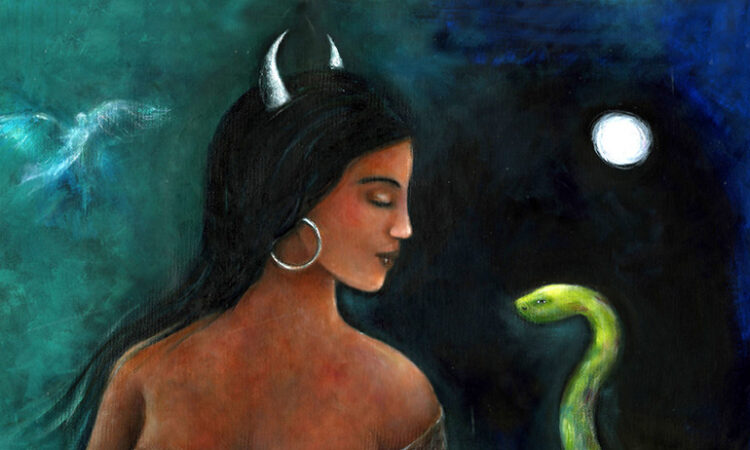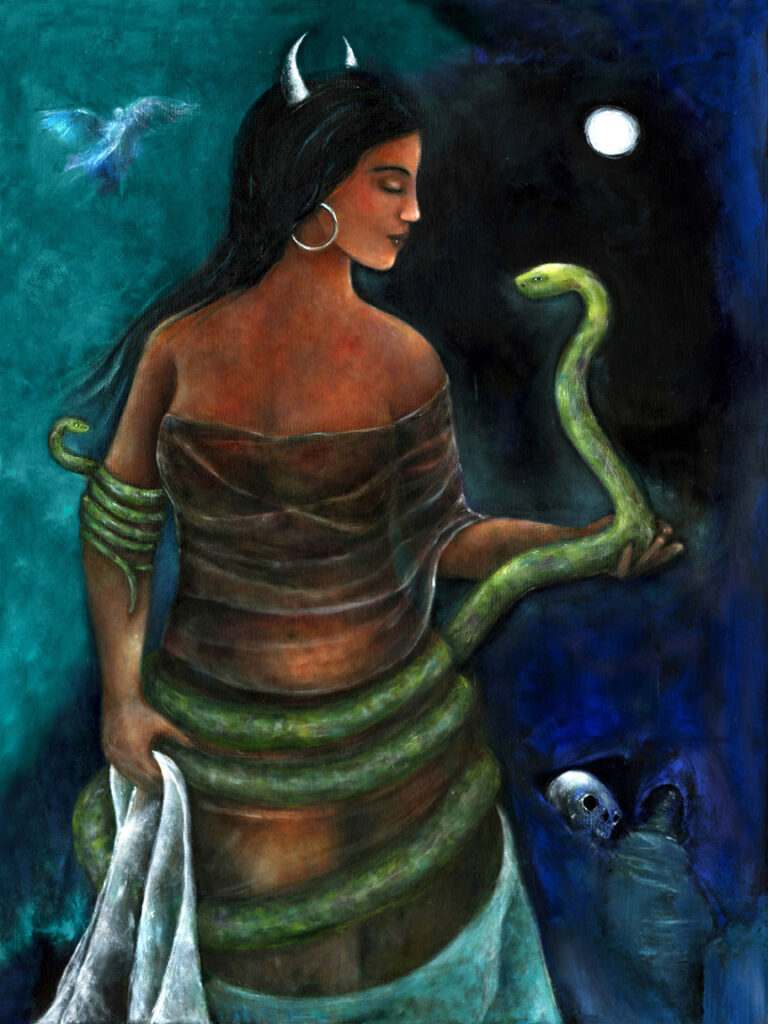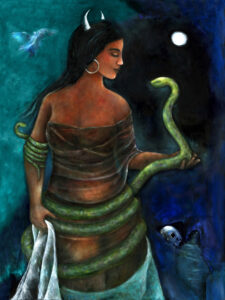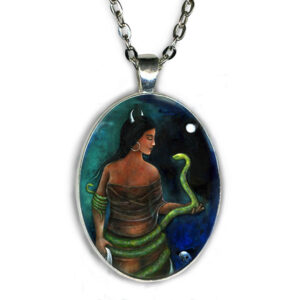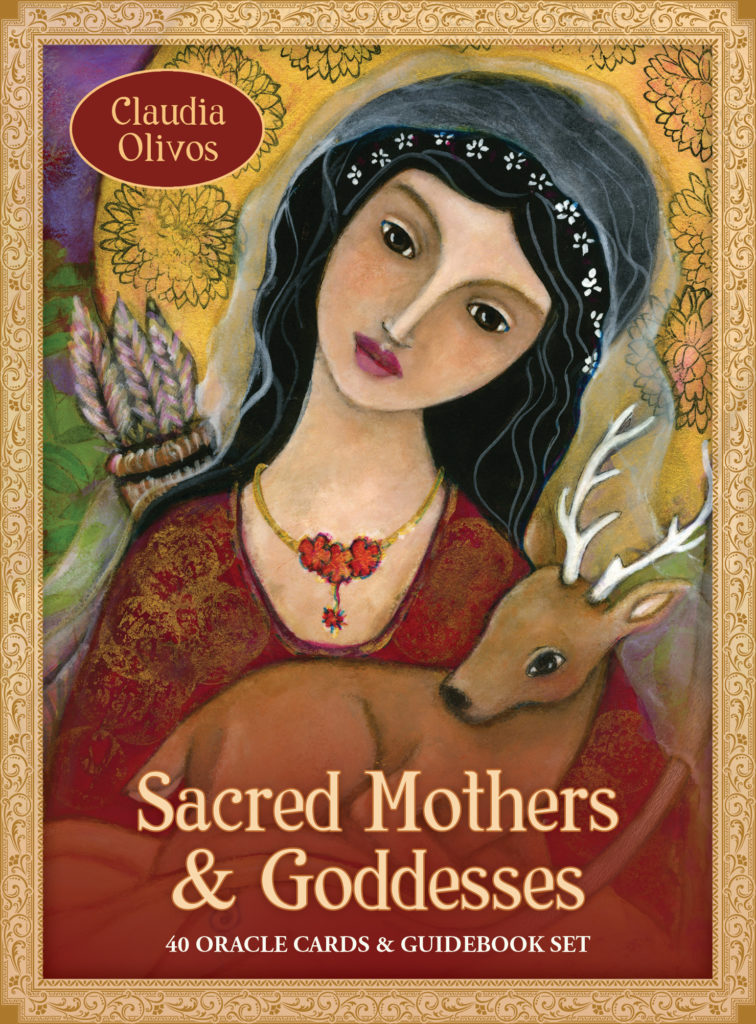Lilith, Goddess of Independence and Empowerment
Lilith, beloved and powerful, resonates deeply with themes of independence, empowerment, and the unyielding spirit of defiance against oppression. Her origins predate her appearance in biblical narratives, making her a compelling and complex archetype embraced by modern spirituality, particularly by women seeking to reclaim their autonomy and voice.
Ancient Origins and Mythological Roots
Lilith’s journey begins in ancient Mesopotamian mythology, where she initially appears as a winged demon or storm goddess associated with fertility and the protection of mothers and children. Known as Lilitu in Sumerian texts, she embodied both traits of destructive power and feminine sexuality. Later in Babylonian lore, she evolved into Lamashtu, a figure feared for threatening newborns and mothers, yet also revered for her protective qualities over women.
From Myth to Scripture: Lilith in Judaic Folklore
In Judaic folklore and later non-canonical biblical interpretations, Lilith emerges as Adam’s first wife, created from the same earth as him. Their relationship soured when Lilith refused to submit to Adam, asserting her equality and independence. This rebellion against patriarchal authority led to her expulsion from Eden, though this narrative is absent from the traditional Bible, it has inspired countless interpretations and artistic representations over centuries.
The Myth of Lilith’s Children and Divine Retribution
One of the most poignant aspects of Lilith’s mythology involves her children and the tragic fate decreed upon them. After leaving Adam, Lilith supposedly coupled with demons and bore children destined to die shortly after birth—a divine punishment inflicted by God to prevent her offspring from spreading chaos. Some interpretations depict Lilith responding with vengeance, tragically mirroring her own loss by visiting death upon human infants.
Unjust Depictions and Cultural Reclamation
Throughout history, Lilith has been unfairly depicted and vilified, much like other powerful female figures such as Medusa. Her defiance against Adam’s authority and her insistence on equality have been twisted into tales of malevolence and demonic tendencies. This characterization mirrors society’s discomfort with women who challenge norms and assert their independence.
Lilith’s association with infanticide, for example, has been used to paint her as a malevolent figure, when in fact, her actions could be interpreted as a desperate response to the loss and grief imposed upon her. In modern interpretations, Lilith’s story resonates with women who have been marginalized or demonized for asserting their rights and autonomy. She symbolizes resilience in the face of adversity and the courage to challenge unjust treatment. As such she has risen to fame in contemporary spirituality and feminist discourse,
Lilith has been reclaimed as a symbol of empowerment and justice. She represents the refusal to accept oppressive roles and the determination to reclaim one’s autonomy and voice. As a mythological figure, she challenges us to question societal norms and to embrace our true selves, unapologetically and fiercely.
Lilith, with her rich tapestry of myths and her potent symbolism, continues to captivate spiritual seekers, particularly those who resonate with themes of empowerment and autonomy. In embracing Lilith, individuals not only reclaim forgotten narratives but also reaffirm the inherent strength and dignity of all beings. Lilith invites us to explore our own inner rebellions, to honor our desires, and to stand unapologetically in our truth..
I am in deep gratitude for her presence in the Sacred Mothers and Goddesses Oracle deck as Lilith stands as a reminder that behind every demonized figure lies a deeper truth waiting to be unearthed—a truth that challenges us to reconsider our assumptions and embrace the full spectrum of human experience leading to Self Love, and a thus a deeper Love to those around us.
Embracing Lilith: Symbolic Meanings and Altar Offerings
Lilith embodies several profound symbolic meanings:
- Empowerment: Encouraging individuals to reclaim power and assert autonomy.
- Freedom: Symbolizing liberation from societal constraints and oppressive norms.
- Sexuality: Embracing desires authentically and without apology.
- Equality: Advocating for fairness and recognition of all individuals’ rights.
Creating an altar dedicated to Lilith can serve as a powerful practice for honoring her:
- Symbols of Feminine Power: Statues or images depicting strong women or goddesses.
- Incense and Herbs: Cedar, myrrh, and sandalwood resonate with Lilith’s energies.
- Crystals: Black tourmaline for protection, garnet for strength, or moonstone for intuition.
- Candles: Red or black candles symbolize passion and mystery.
- Offerings of Sensuality: Dark chocolates, pomegranates, or wine.
Conclusion: Embracing Lilith’s Legacy
Lilith’s story is a testament to the enduring power of myth and the resilience of the human spirit. From ancient demoness to feminist icon, her narrative challenges us to reconsider assumptions and embrace the full spectrum of human experience. By honoring Lilith, we honor resilience, autonomy, and the inherent strength of all beings—a profound journey toward self-love and deeper connections with those around us.

